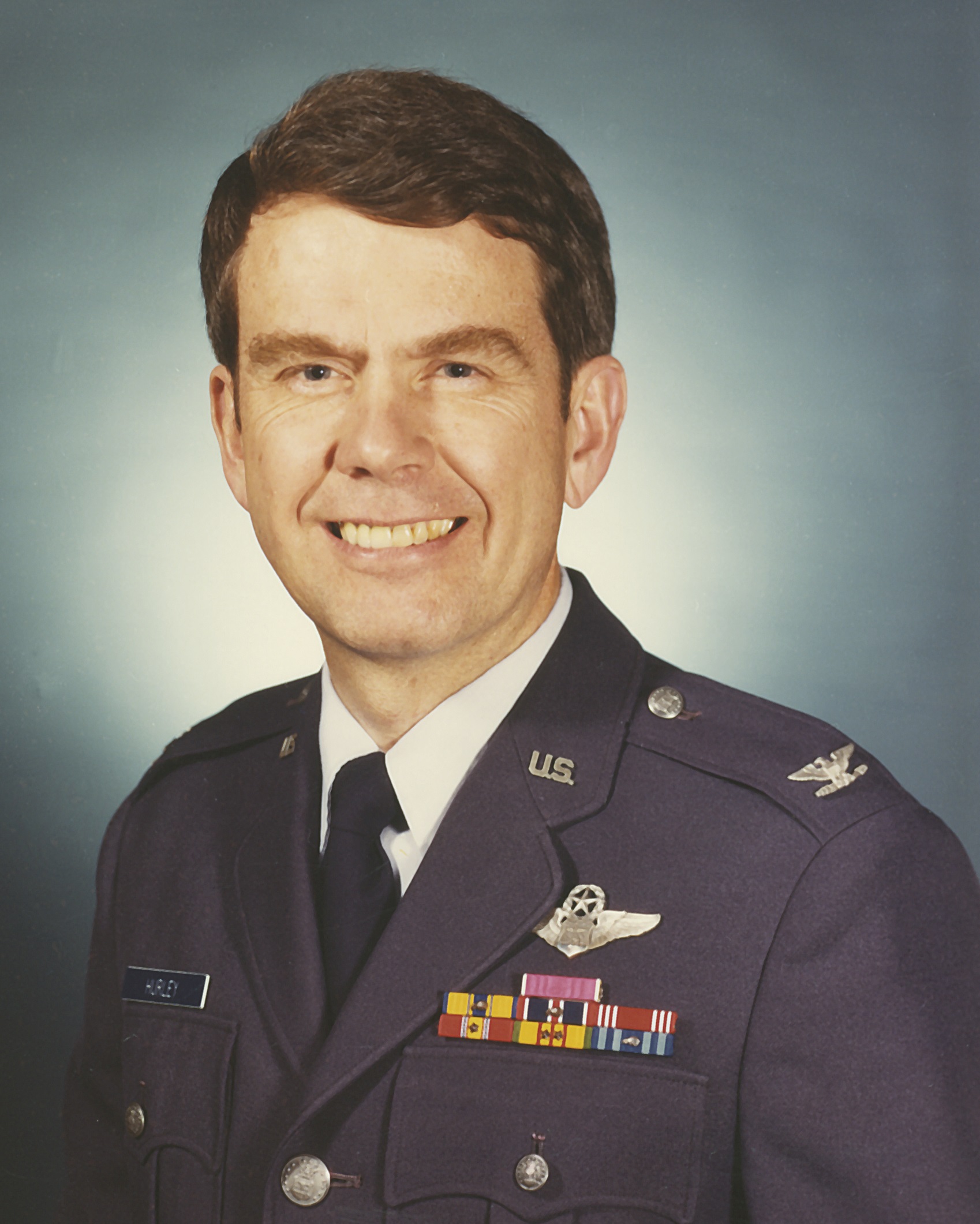Home Index
 Brigadier General
Brigadier General
Alfred F. Hurley
Permanent Professor 1966–1980
B.A., St. John’s University
M.A., Princeton University
Ph.D., Princeton University
Al Hurley, the Academy’s 19th Permanent Professor, was born in Brooklyn, New York, in 1928. He graduated summa cum laude from St. John’s University, Jamaica, NY, in 1950, with a major in English and a minor in Philosophy. That year he enlisted in the Air Force and was assigned to Reese AFB, TX. His talents were soon recognized, for he was sent to Officer Candidate School, Lackland AFB, TX, where he was commissioned in 1952 as a Distinguished Graduate. He earned his navigator wings at Ellington AFB, TX, in 1954 and then served on the staff of the Aircraft Observer Instructor Course at James Connally AFB, TX. In 1956 Al entered Princeton in preparation for an assignment to the Air Force Academy faculty. In 1958 he earned his Master’s degree in History while completing course requirements for his doctorate, and he began teaching in the Department of History at the Academy. During this five-year tour he completed his dissertation and was awarded Princeton’s PhD degree (1961). His book, Billy Mitchell: Crusader for Air Power (1964; 2006), is considered the definitive scholarly work on the subject. In 1963 Al was assigned as a C-97 Navigator, Wiesbaden Air Base, Germany, where he flew more than 70 reconnaissance missions during the height of the Cold War. A year later, he was assigned to the War Plans Division, HQ US Air Forces, Europe, Ramstein Air Base, Germany. Returning to the Department of History in 1966, Al was appointed Permanent Professor and Acting Department Head, then in 1967 he was promoted to colonel and Head. Al Hurley built a nationally regarded History Department, including establishing in 1968 a core course in World History, one of the first in the United States. He initiated and participated in a program to engage Academy officers in supporting the war in Southeast Asia, known Air Force–wide as CHECO (Contemporary Historical Evaluation of Combat Operations). From 1968 to 1972 the program produced over 100 classified studies of the war, researched and written on the scene. He directed development of the Military History Symposium, a biennial Academy event, which became the leading military history event in the Western world during the Cold War. The Symposium is widely recognized for its contributions to the military profession and the profession of Military History. He was a Guggenheim Fellow, 1971, and, during a sabbatical in 1976–1977, a Fellow of the Eisenhower Institute of the Smithsonian Institution, Washington, DC. Al was promoted to brigadier general and retired in 1980.
Following retirement from the Air Force, Al became the President of the University of North Texas. From 1982 to 2002 he was the Chancellor of the entire UNT System. As President and Chancellor, he spurred tremendous growth in enrollment, endowment, facilities, and academic stature. As a tribute to his accomplishments, the Board of Regents named the administration building, which stands at the center of the campus in Denton, the Alfred F. and Johanna H. Hurley Administration Building, in honor of this “unsung hero of higher education.” After retiring from leadership, he continued to teach as a Professor of History until 2008. He died in 2013 and is buried in the Air Force Academy Cemetery.